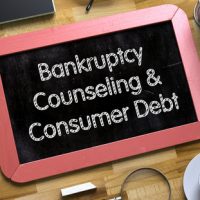Why Debt Settlement May Not Be a Great Idea

Are debts weighing on your mind? If so, you probably are finding it hard to sleep at night or think about anything else during the day. The good news is that help is available. However, not all debt relief options are the same. One terrible option is “debt settlement,” which typically involves trying to settle your debts for a percentage of their face value.
Sounds great, right? Unfortunately, to agree to a settlement, creditors will want at least 50-60% of the total debt. The only way most debtors can make this lump sum payment is to stop making payment on their debts and saving the money. Unfortunately, by stopping payment, they open themselves up to lawsuits and harassment from collection agencies. Read on for other reasons why debt settlement rarely works.
You’ll Tank Your Credit Score
As mentioned above, to save up your lump sum, you will probably have to stop making payments on debts. When accounts get sent to collections, your credit score will nosedive, and collection accounts can stay on your credit report for up to 7 years.
Conversely, a Chapter 7 bankruptcy is a quick way to wipe out unsecured debts like personal loans medical debt, or credit card debt. True, your credit score will also tank, but you’ll be better positioned to begin building your credit quickly.
Dealing with Debt Collectors is Stressful
It might take years to save up enough money so that you can make a lump sum offer to your creditors. In the interim, they can continue to call you and send you threatening letters. This is very stressful and can take a toll on your physical and mental health.
By contrast, a bankruptcy can stop all collections activity in its tracks. The automatic stay prevents creditors from collecting on a debt once you file for bankruptcy. Furthermore, you can complete a Chapter 7 bankruptcy in a few months from start to finish, so you will quickly be on your way to a new financial future.
Some Creditors Won’t Agree
You can go around and around with creditors, using your best negotiation skills, but no creditor is required to accept a percentage of the debt. Instead, they can bring a lawsuit against you and get a court judgment which will allow them to possibly garnish your wages or seize your property and sell it. At the end of the process, your credit score will be in tatters and you might be without your car or real estate.
Conversely, creditors don’t have a choice when it comes to bankruptcy. If a debt qualifies for discharge under Chapter 7, it gets discharged unless you agree to reaffirm it. You can wipe your hands clean of annoying creditors and start rebuilding your credit.
Speak with a Florida Bankruptcy Lawyer Now
To discuss your options, you need level-headed advice from a qualified bankruptcy attorney. At Nowack & Olson, our team handles some of the toughest consumer bankruptcy cases, and we are here to advise you. Contact us today in Plantation for a free consultation.
Resources:
law.cornell.edu/uscode/text/11/362
uscourts.gov/services-forms/bankruptcy/bankruptcy-basics/chapter-7-bankruptcy-basics
